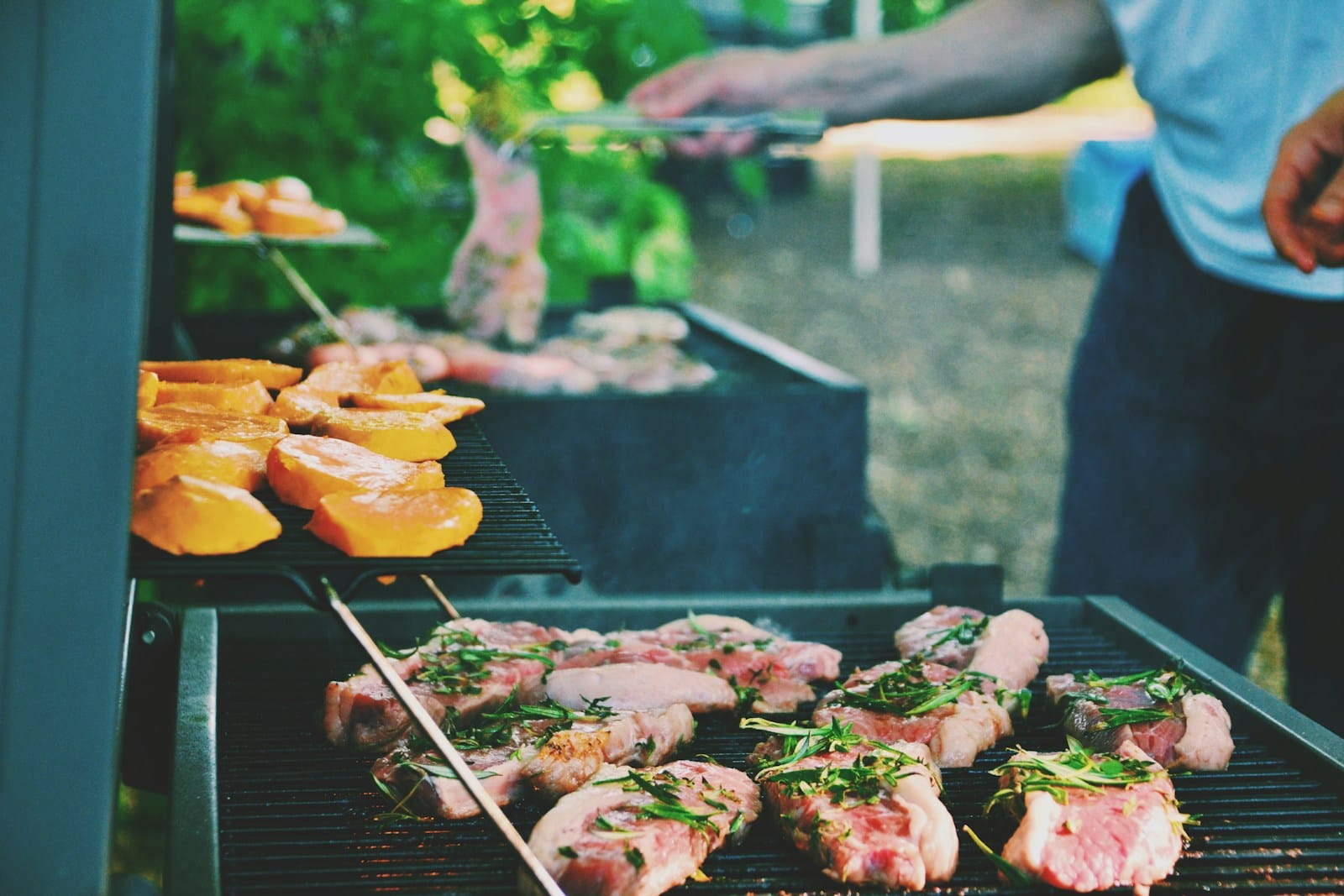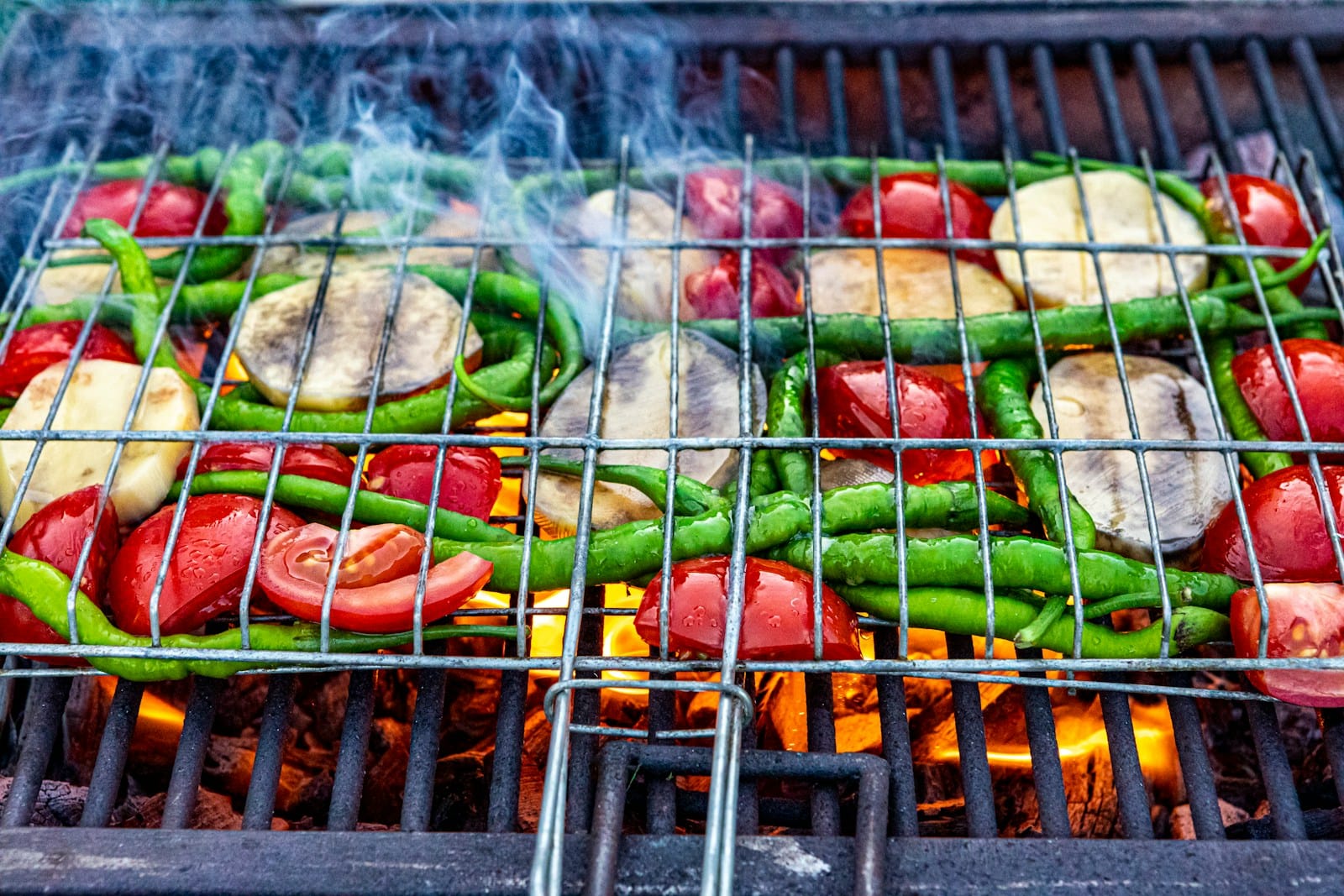Pregnancy-Safe Grilling: Tips for Expectant Mothers This Summer
Summer’s finally here, which means it’s time to fire up the grill! If you’re pregnant, you might be wondering whether it’s safe to hang out by the barbecue or eat grilled food. Here’s the good news: with a few easy steps, you can still enjoy those backyard cookouts.
The big things to watch out for are making sure your meat is cooked all the way through and not letting raw and cooked foods mix. Ground beef should hit at least 160°F and poultry needs to reach 165°F to wipe out any nasty bacteria. A food thermometer is your best friend for this.
There’s some research out there about chemicals called polycyclic aromatic hydrocarbons (PAHs) from grilled meat possibly affecting your baby’s development. You can lower this risk by not letting your food get charred, using foil, or picking leaner cuts.
Key Principles of Pregnancy-Safe Grilling
Grilling safely while pregnant means knowing the right cooking temps, handling food with care, and steering clear of certain risks that could mess with your health or your baby’s.
Safe Cooking Temperatures
Getting food to the right temperature is crucial. Undercooked meat and poultry can hide bacteria like E. coli and Salmonella, which are extra risky when you’re pregnant.
Here’s what you need to know:
- Chicken and turkey: 165°F (74°C)
- Ground beef: 160°F (71°C)
- Steaks and roasts: 145°F (63°C) with a 3-minute rest
- Fish and shellfish: 145°F (63°C)
- Pork: 145°F (63°C) with a 3-minute rest
Skip rare or medium-rare meats for now. Color isn’t a reliable way to check. Always use a thermometer.

Preventing Foodborne Illness
Pregnant women are more likely to get sick from food poisoning, and that can cause real trouble for you and your baby.
Before grilling:
- Wash your hands with soap for at least 20 seconds
- Keep raw meat away from foods that are ready to eat
- Use separate cutting boards and knives for raw meat
- Marinate food in the fridge, not on the counter
While grilling:
- Don’t put cooked food back on plates that touched raw meat
- Refrigerate leftovers within 2 hours (or 1 hour if it’s super-hot outside)
- Reheat leftovers to 165°F
Keep your prep area clean and be mindful of what touches what.
Avoiding Common Grilling Risks
There are a few other things to think about when grilling and pregnant.
Smoke exposure: Try not to hover over the grill. The smoke isn’t great for anyone, and it’s better to play it safe.
PAHs (Polycyclic Aromatic Hydrocarbons): These chemicals show up when fat drips onto hot coals. You can cut down on them by:
- Trimming extra fat off meat
- Picking leaner cuts
- Skipping the blackened, charred bits
- Using foil or a cedar plank as a barrier
Heat safety: Grills get seriously hot. Ask someone else to handle the hottest jobs and drink plenty of water.

Seafood Selection and Mercury Awareness
Seafood is packed with nutrients, but you’ve got to pick wisely and cook it well. All fish and shellfish should reach 145°F (63°C).
Good Seafood Choices:
- Low-mercury fish, like salmon, tilapia, cod, catfish
- Shellfish (fully cooked): shrimp, scallops
Aim for 2-3 servings of low-mercury seafood a week. Skip high-mercury fish like shark, swordfish, king mackerel, and tilefish.
No raw seafood while pregnant, so pass on sushi with raw fish and raw oysters. Also, avoid refrigerated smoked seafood unless it’s in a cooked dish.
Safe Alternatives to Deli Meats and Hot Dogs
Deli meats and hot dogs can have Listeria, which is especially dangerous in pregnancy. But you can still eat them if you heat them until they’re steaming.
Processed Meats on the Grill:
- Hot dogs: Grill until they’re 165°F inside
- Deli meats: Heat until steaming
- Pre-cooked sausages: Reheat all the way through
If you want something different, try bean burgers or marinated portobello mushrooms. These plant-based options have fewer risks.
For sandwiches, grilled chicken breast is a great swap for cold cuts. You can grill extra and keep it in the fridge for easy meals.
Fruits, Vegetables, and Other Grilled Foods
Grills aren’t just for meat! Lots of fruits and veggies taste amazing grilled, and they’re safe if you prep them right.
Safely Grilling Fruits and Vegetables
Always wash fruits and veggies well before grilling, even if you’re going to peel them. Dirt and bacteria can sneak inside when you cut or peel.
If you’re grilling dense veggies like potatoes or beets, pre-cook them a bit to make sure they’re cooked all the way through. For sprouts, always cook until they’re steaming hot.
Clean the grill before putting on softer fruits like peaches or pineapple to avoid cross-contamination. Use different boards and knives for raw meat and produce.
Some tasty, pregnancy-safe grilled veggies:
- Corn on the cob (grill until tender)
- Zucchini slices (grill until soft and marked)
- Bell pepper quarters (until the skin chars a bit and flesh softens)
- Eggplant slices (until they’re tender)

Juices and Beverages for Pregnant Women
Stay hydrated! Only drink pasteurized juices and ciders. Unpasteurized ones can carry E. coli and other bacteria.
Water is always your best bet. If you’re sipping tea or coffee, keep caffeine under 200mg a day (about a 12-oz coffee).
Try grilled fruit mocktails: caramelize pineapple or peaches on the grill, blend with ice and pasteurized juice. It’s sweet, smoky, and alcohol-free.
Don’t leave drinks in the sun. Warm drinks can grow bacteria. Keep cold drinks in a cooler with plenty of ice, especially when it’s hot out.
Related Posts
- 10 Best Summer Activities for Babies
- The Best Sunburn Relief for Babies and Toddlers
- Swimming During Pregnancy Precautions
- Tips for Attending Outdoor Events with Babies
Frequently Asked Questions
Got questions? Here are some quick answers to common grilling concerns during pregnancy. These tips should help you enjoy grilling season while keeping you and your baby safe.
What are the best grilling foods to consume during pregnancy?
Lean proteins are a great pick. Chicken breasts, turkey burgers, and fish like salmon are tasty and full of protein.
Veggies are perfect for grilling too. Corn, bell peppers, zucchini, and eggplant are all safe and nutritious.
Just make sure all meats reach their safe temps: chicken at 165°F (74°C), beef at 160°F (71°C), and fish at 145°F (63°C).
Are there any grilling methods to avoid in the third trimester?
Standing over a hot grill for too long can be uncomfortable, especially late in pregnancy. Set up a chair and ask for help if you need it.
Try to avoid breathing in too much smoke. It can make you feel dizzy or nauseous. Stand upwind if you can.
Skip grilling methods that make a lot of smoke or char, since those create more potentially harmful compounds.
Is it safe to eat meat grilled over charcoal while pregnant?
Yes, as long as the meat is cooked to the right temperature. The key is making sure everything’s done all the way through.
To lower your exposure to chemicals like PAHs and HCAs, don’t eat the charred or black parts of meat.
Use a thermometer to check. Don’t just guess by how it looks.
What precautions should I take when cooking on the grill during pregnancy?
First off, always wash your hands well before and after touching raw meat. It’s easy to forget, but it really matters. Keep separate plates and utensils for raw and cooked foods. Cross-contamination is just not worth the risk.
Drink plenty of water and try to step away from the heat every so often. It’s surprisingly easy to get overheated or dehydrated while pregnant, especially if you’re busy at the grill.
Heat-resistant gloves are a must. Burns can be more serious when you’re pregnant, and honestly, your balance might feel a bit off some days.
Is it safe to consume BBQ sauce during pregnancy?
Most store-bought BBQ sauces are fine to eat when you’re pregnant. They’re usually pasteurized and have vinegar, which keeps bacteria in check.
If you’re whipping up homemade BBQ sauce, skip any recipe that calls for raw eggs. Make sure you cook the sauce all the way through.
Take a quick look at the label if you’re buying specialty or craft BBQ sauces. Some use bourbon or wine. Sure, most of the alcohol cooks off, but if that makes you uneasy, it’s easy enough to pick a different sauce.






